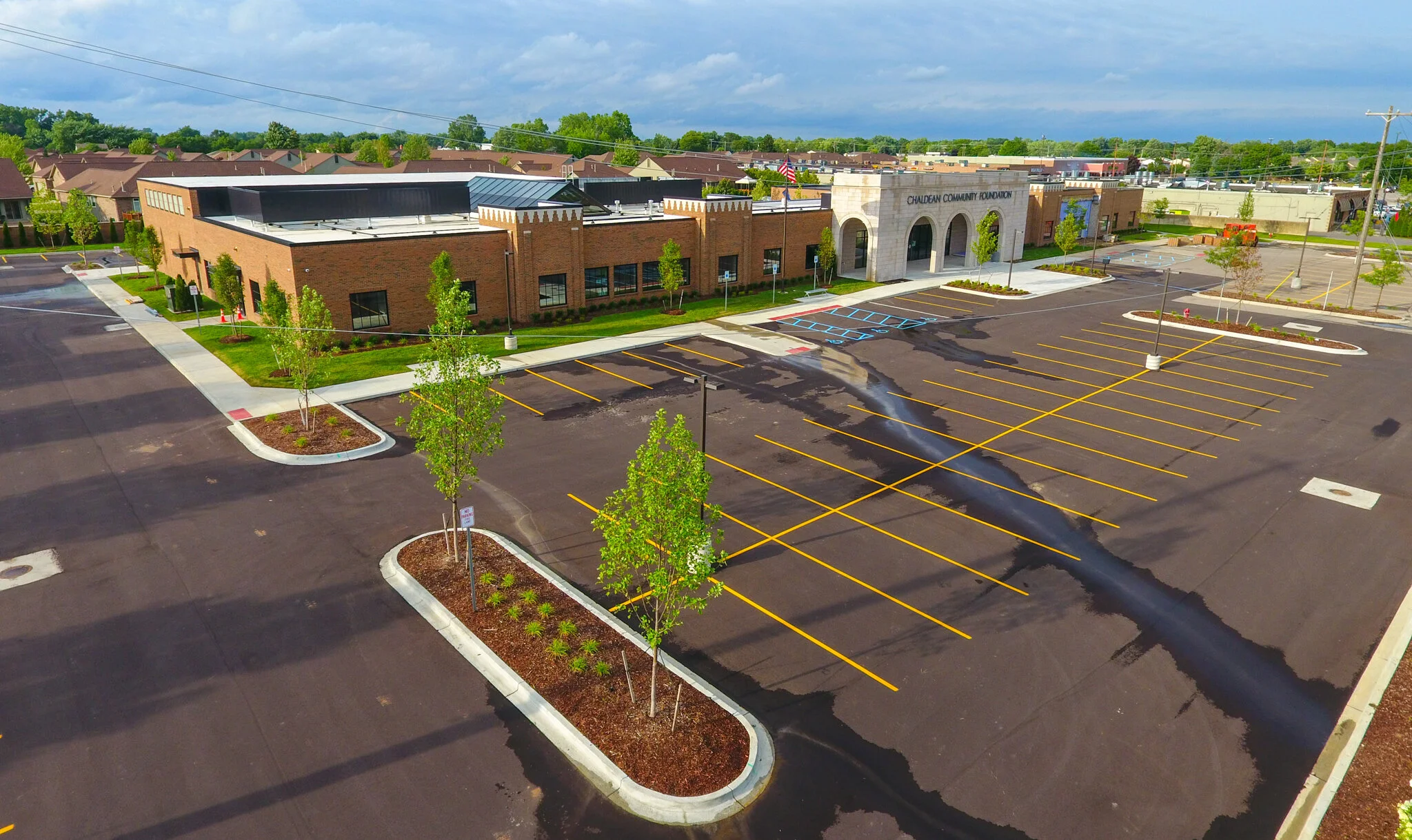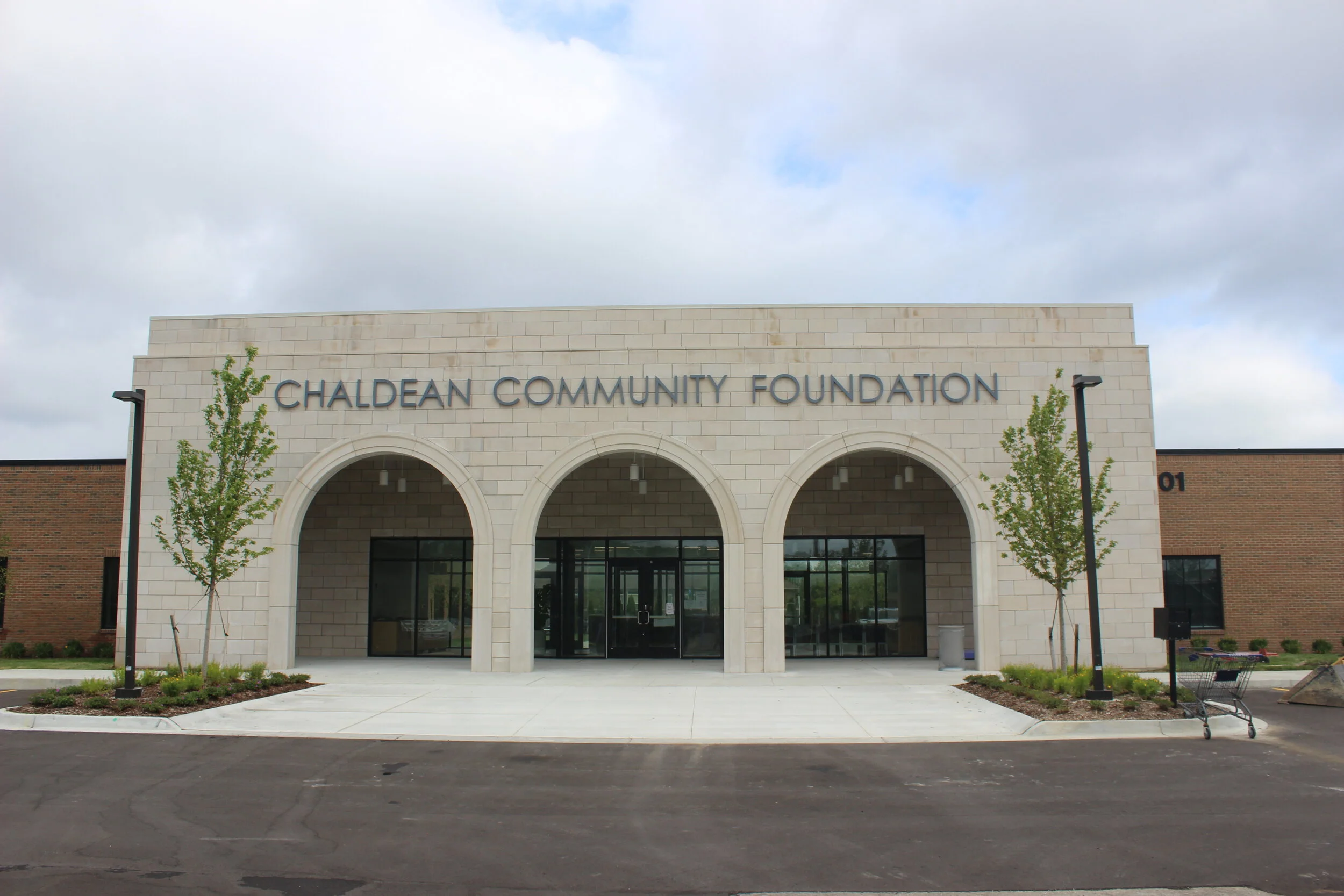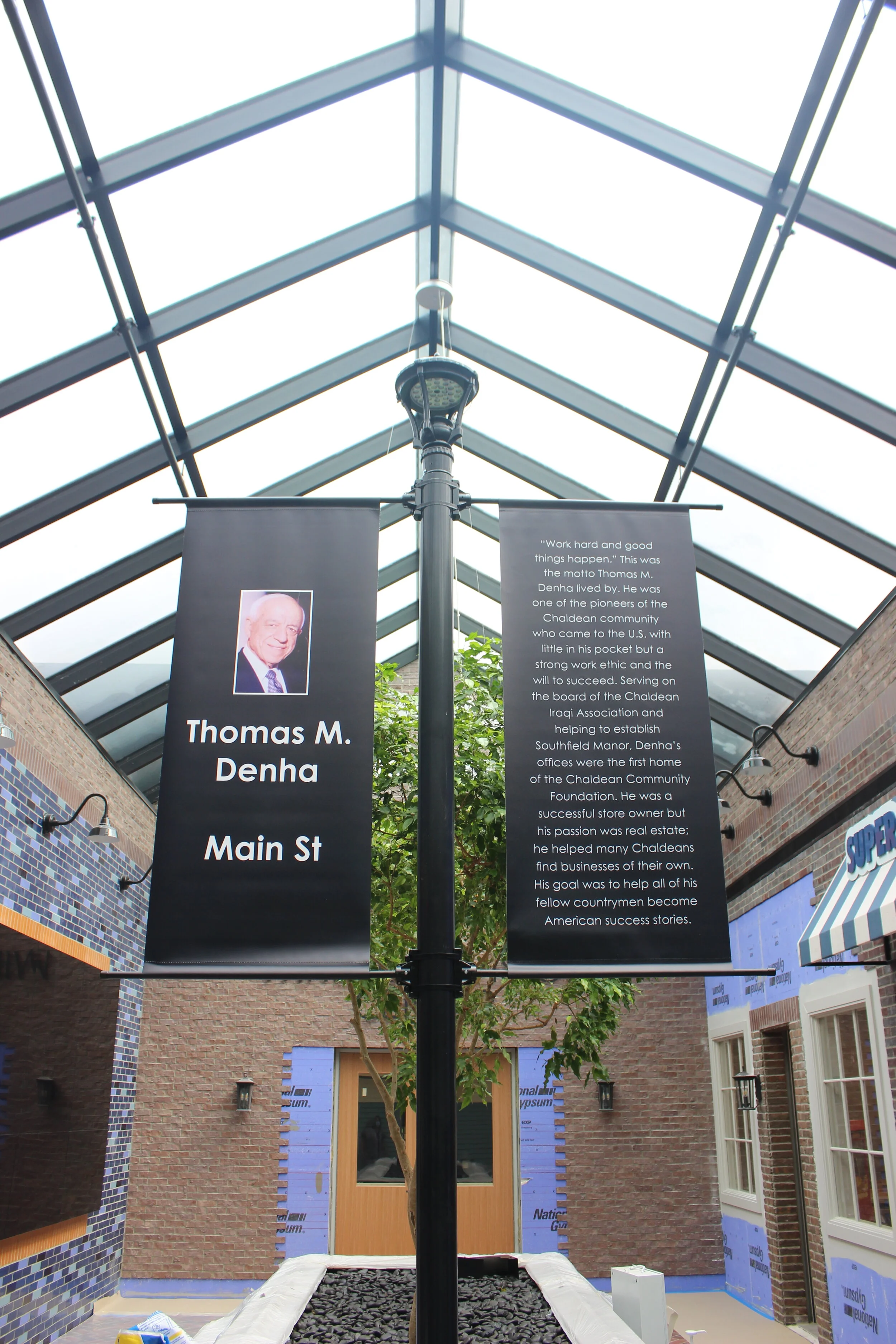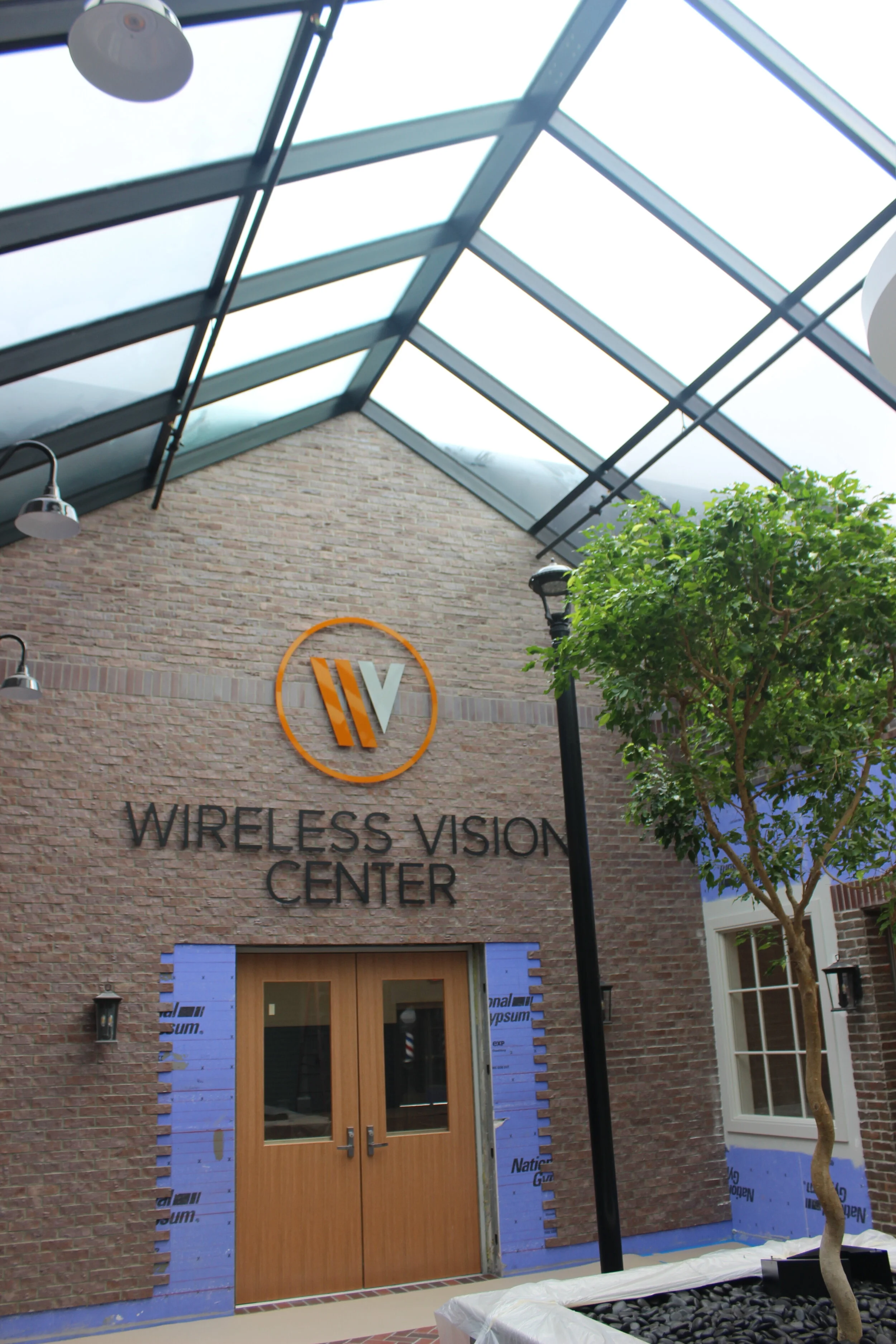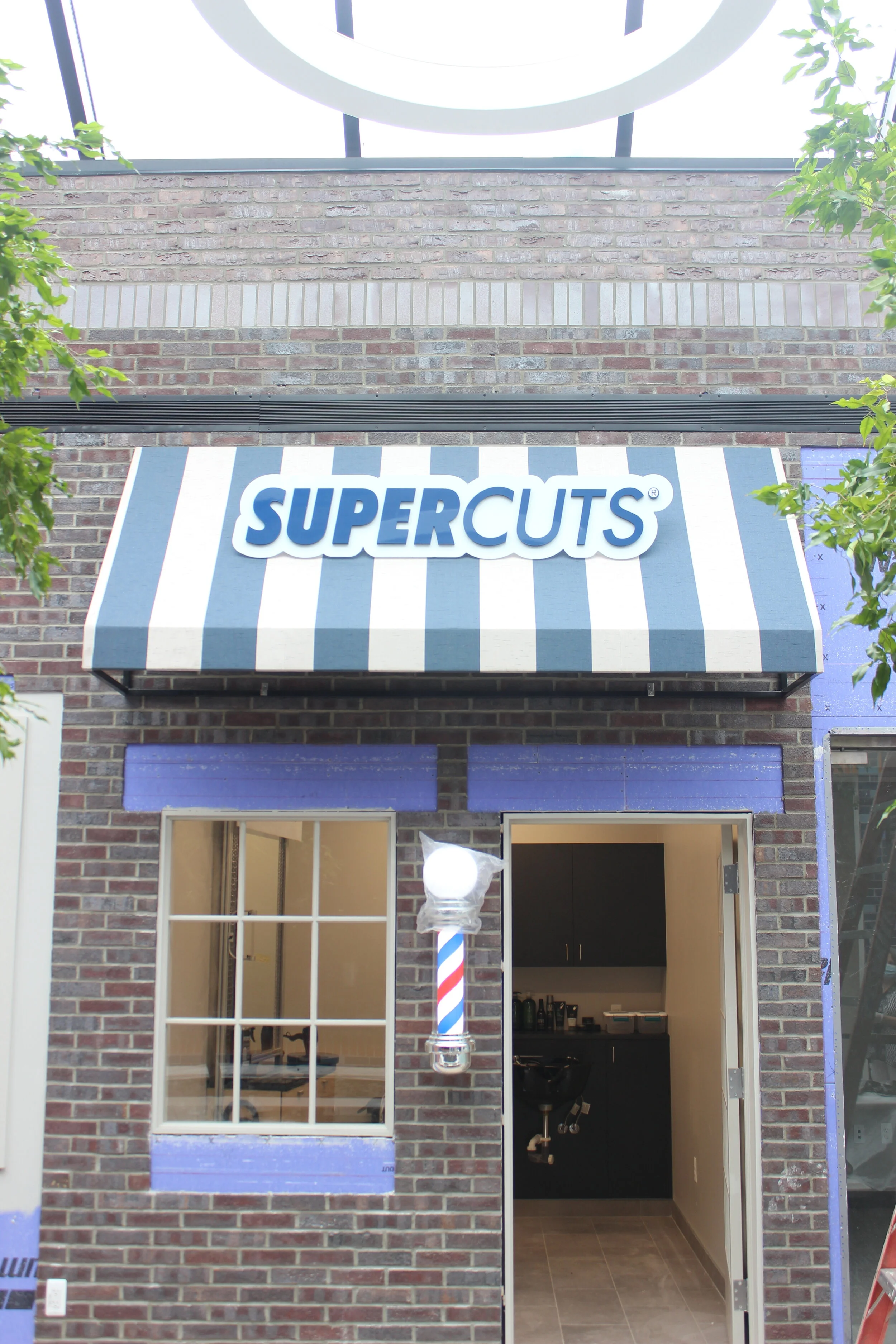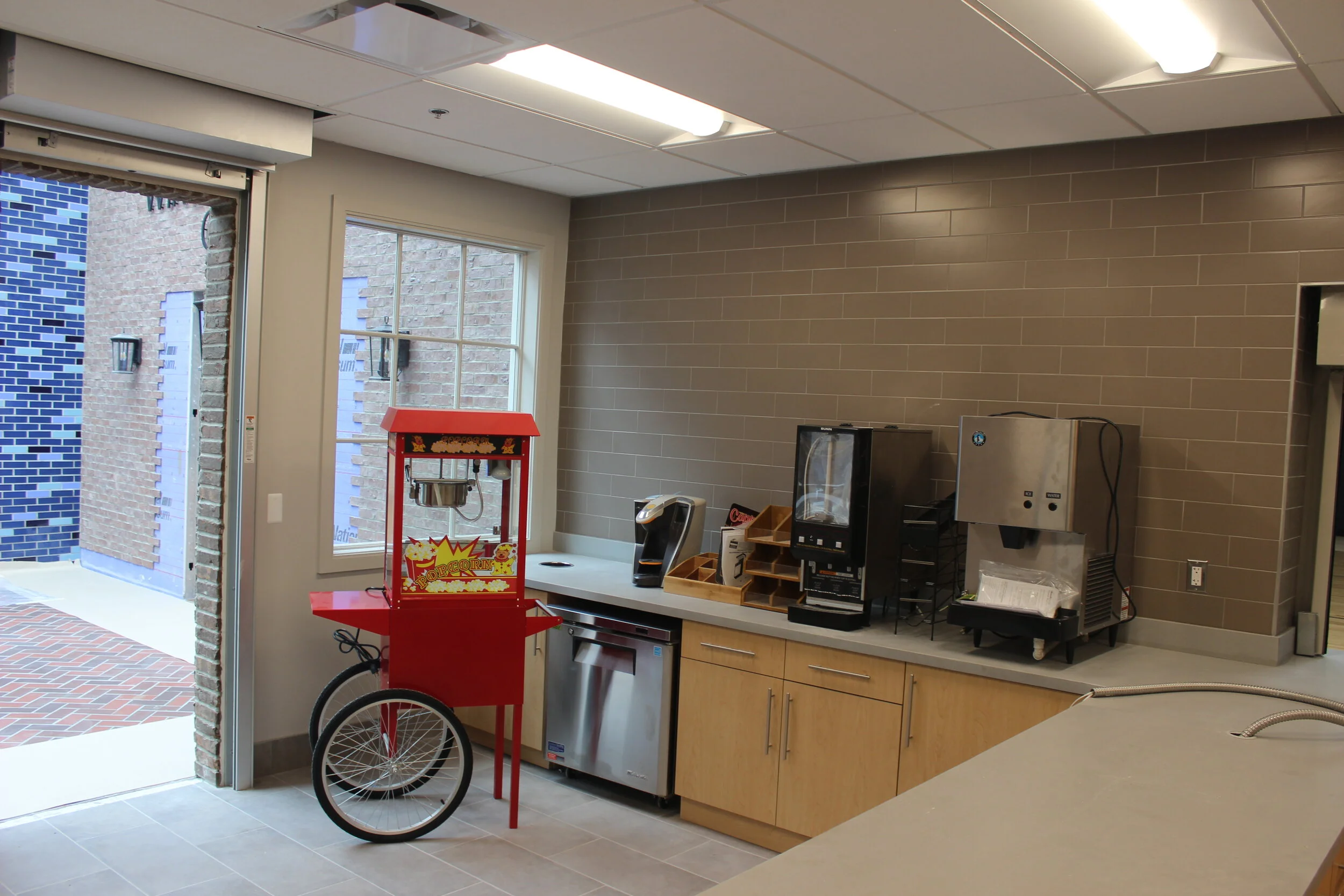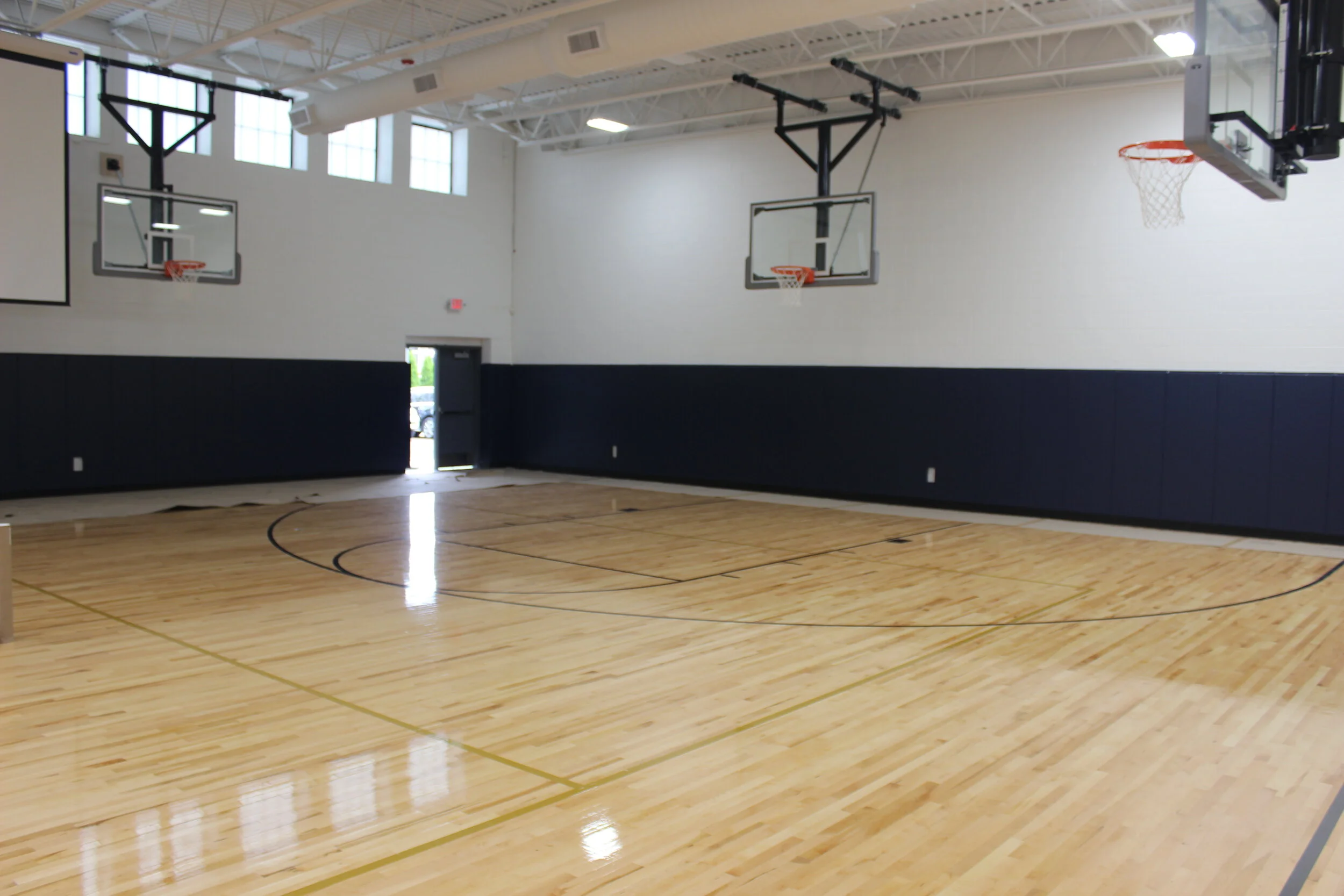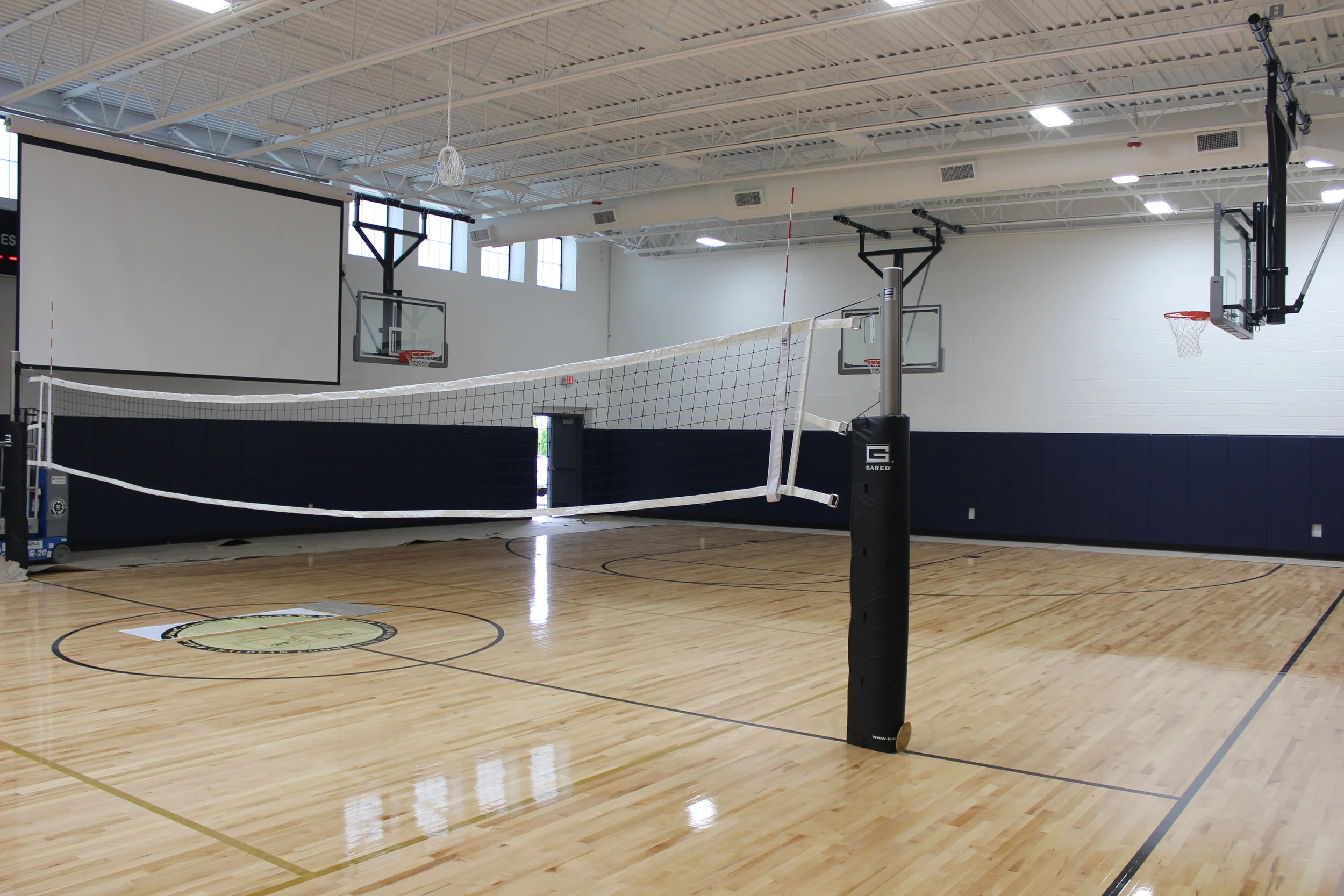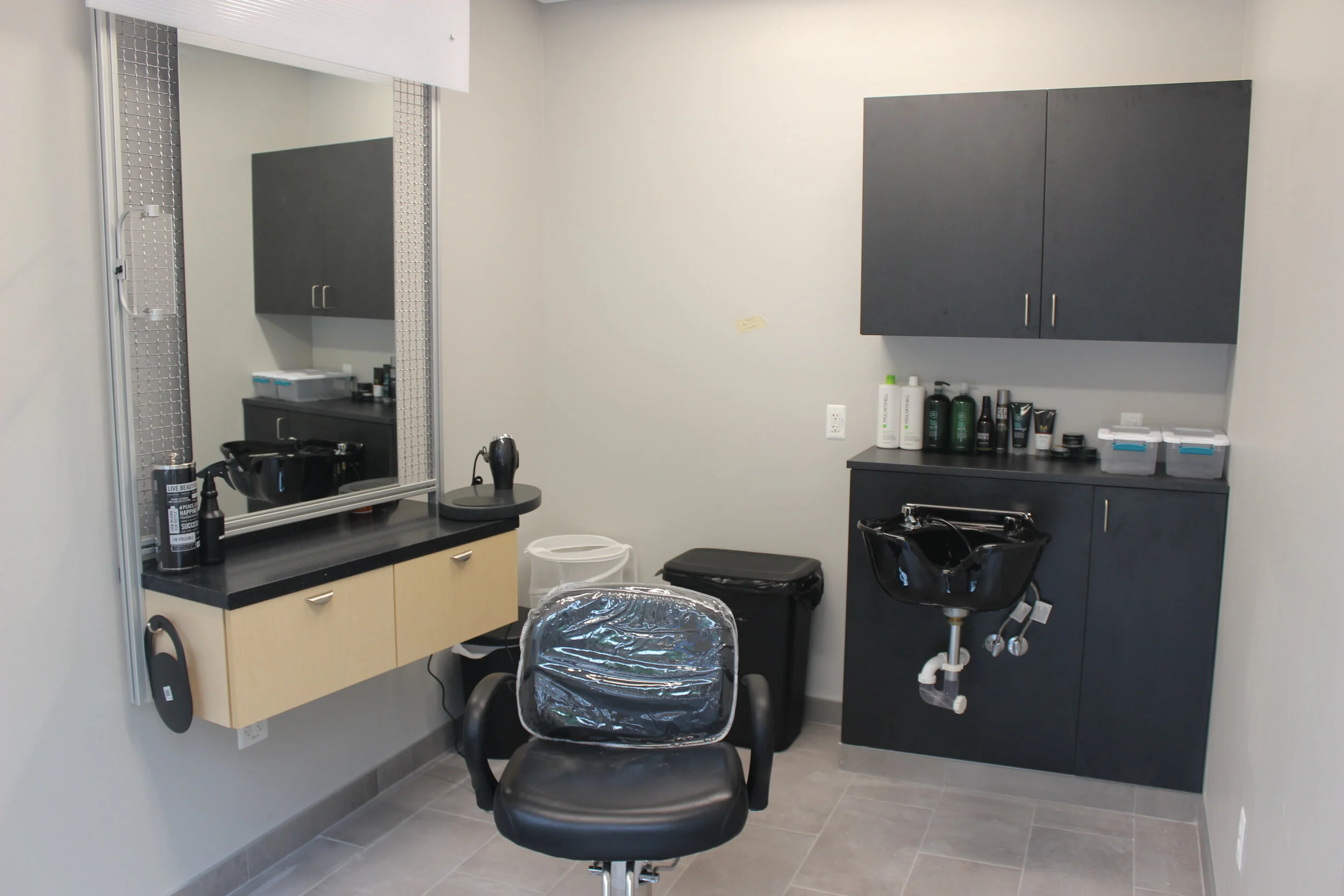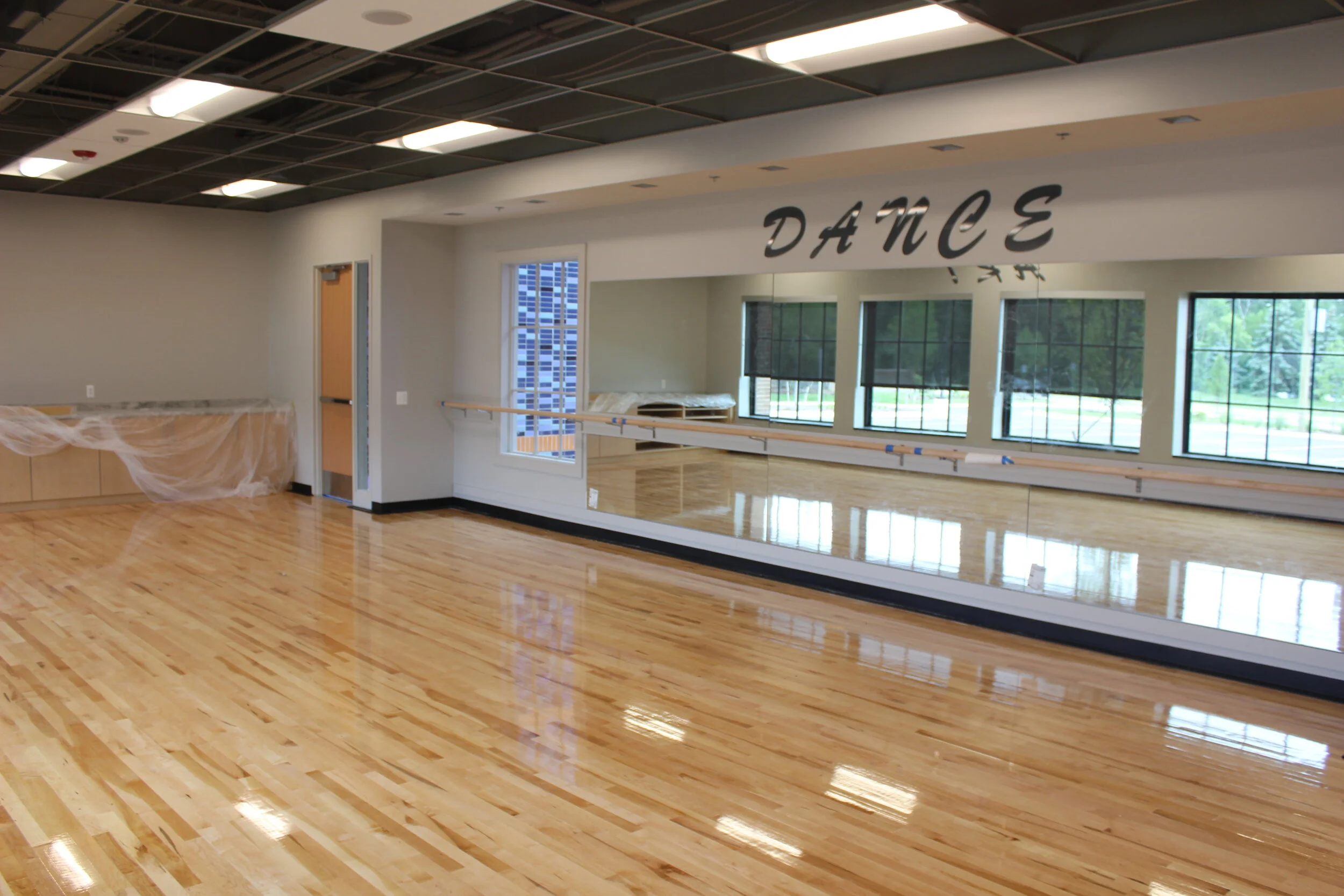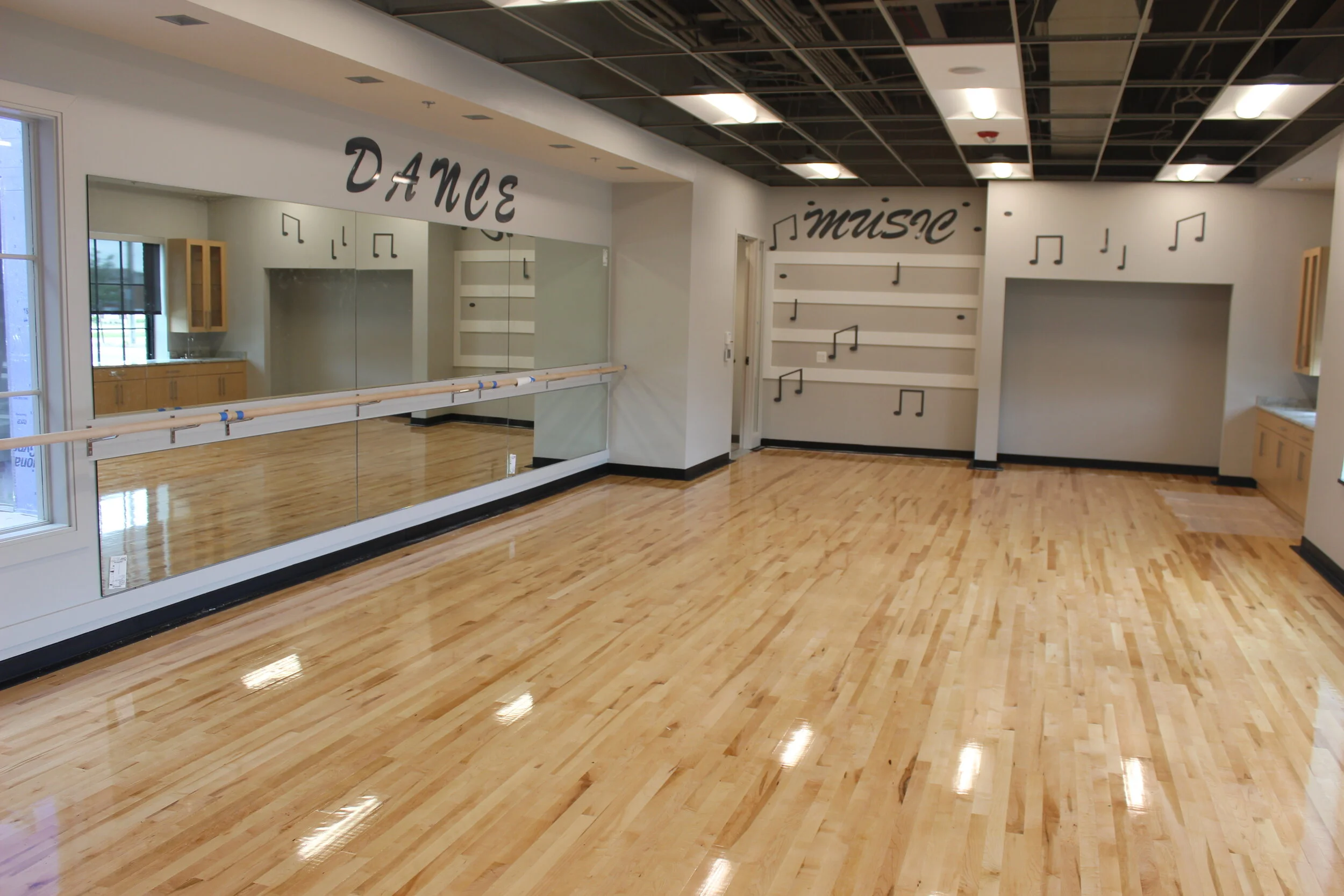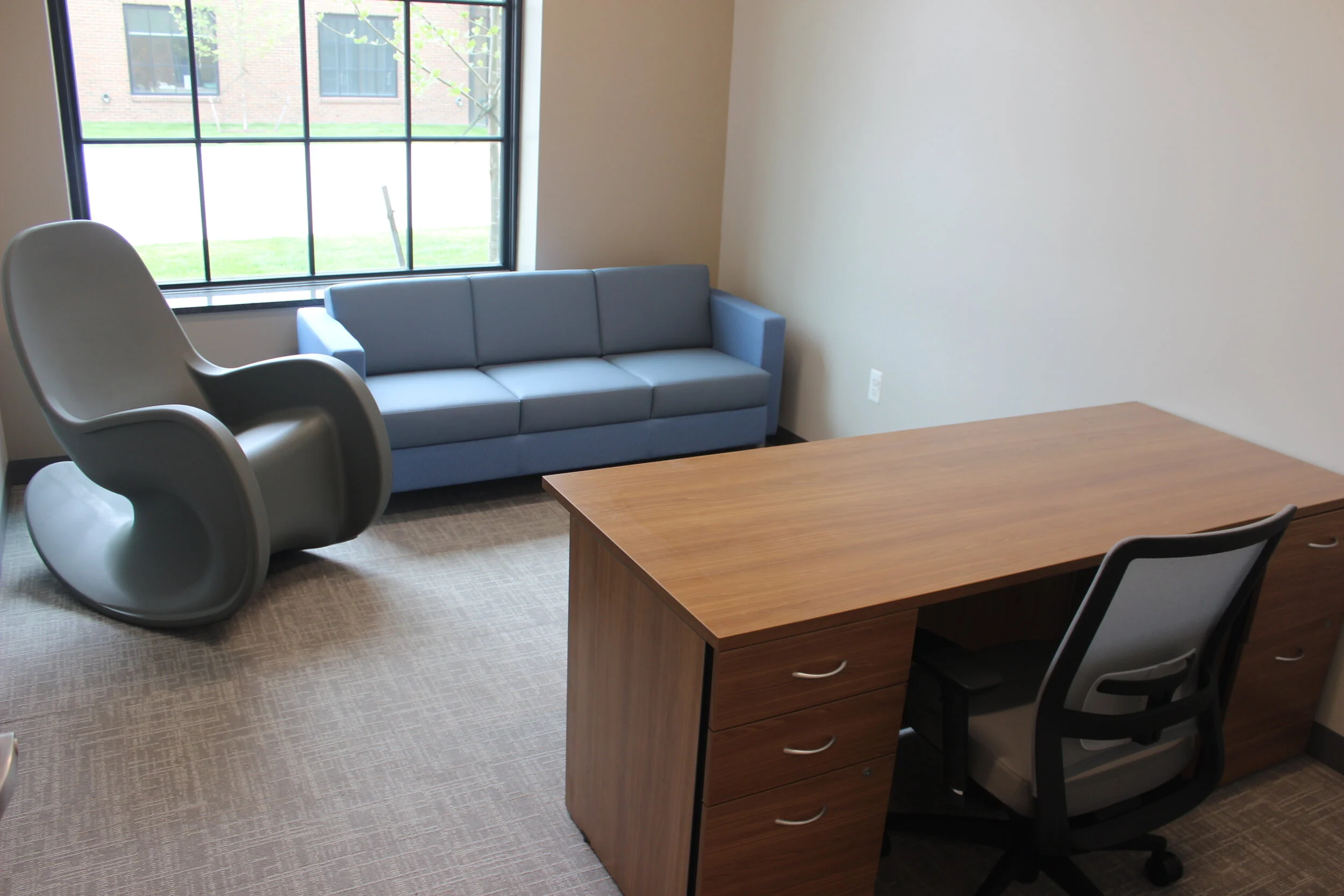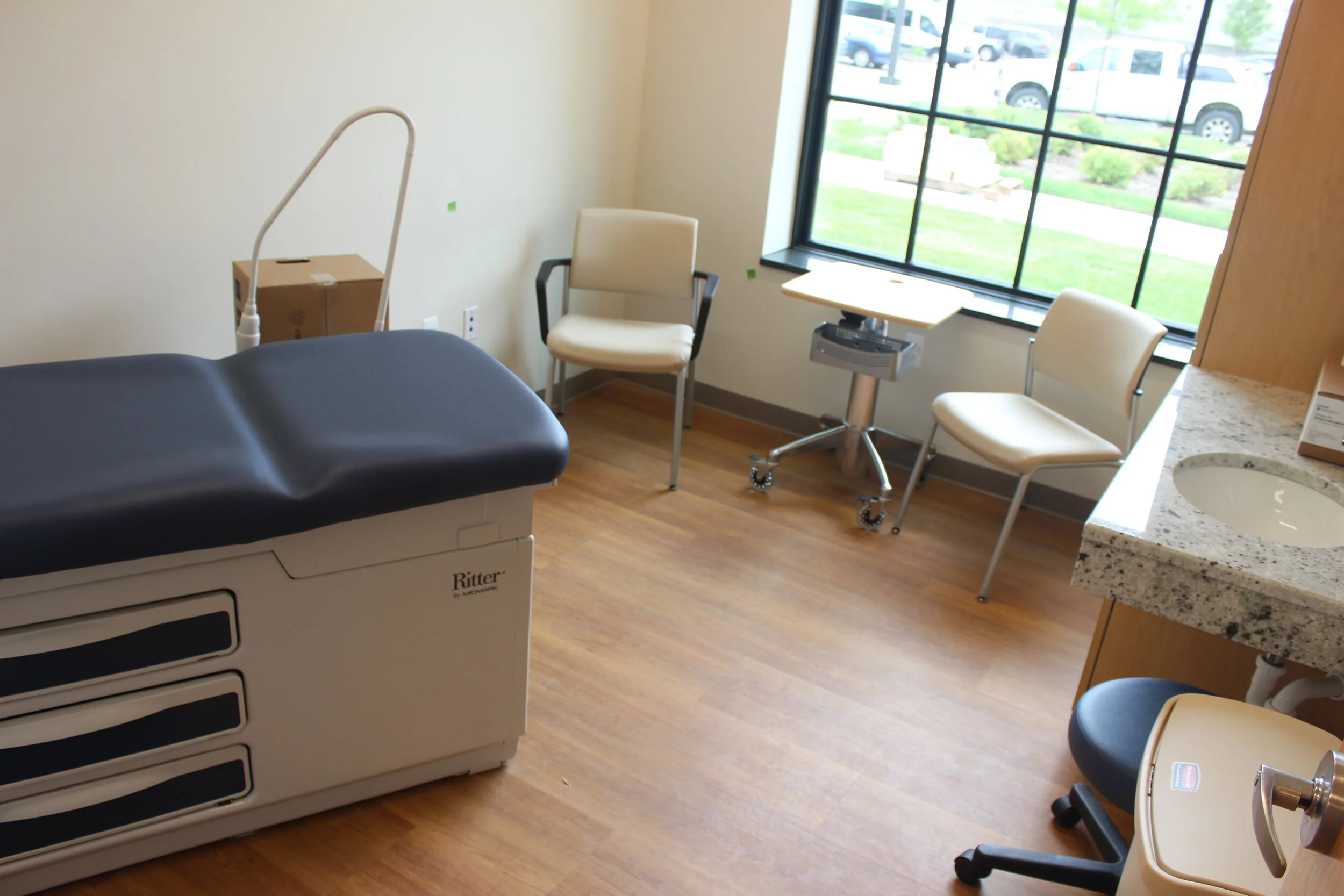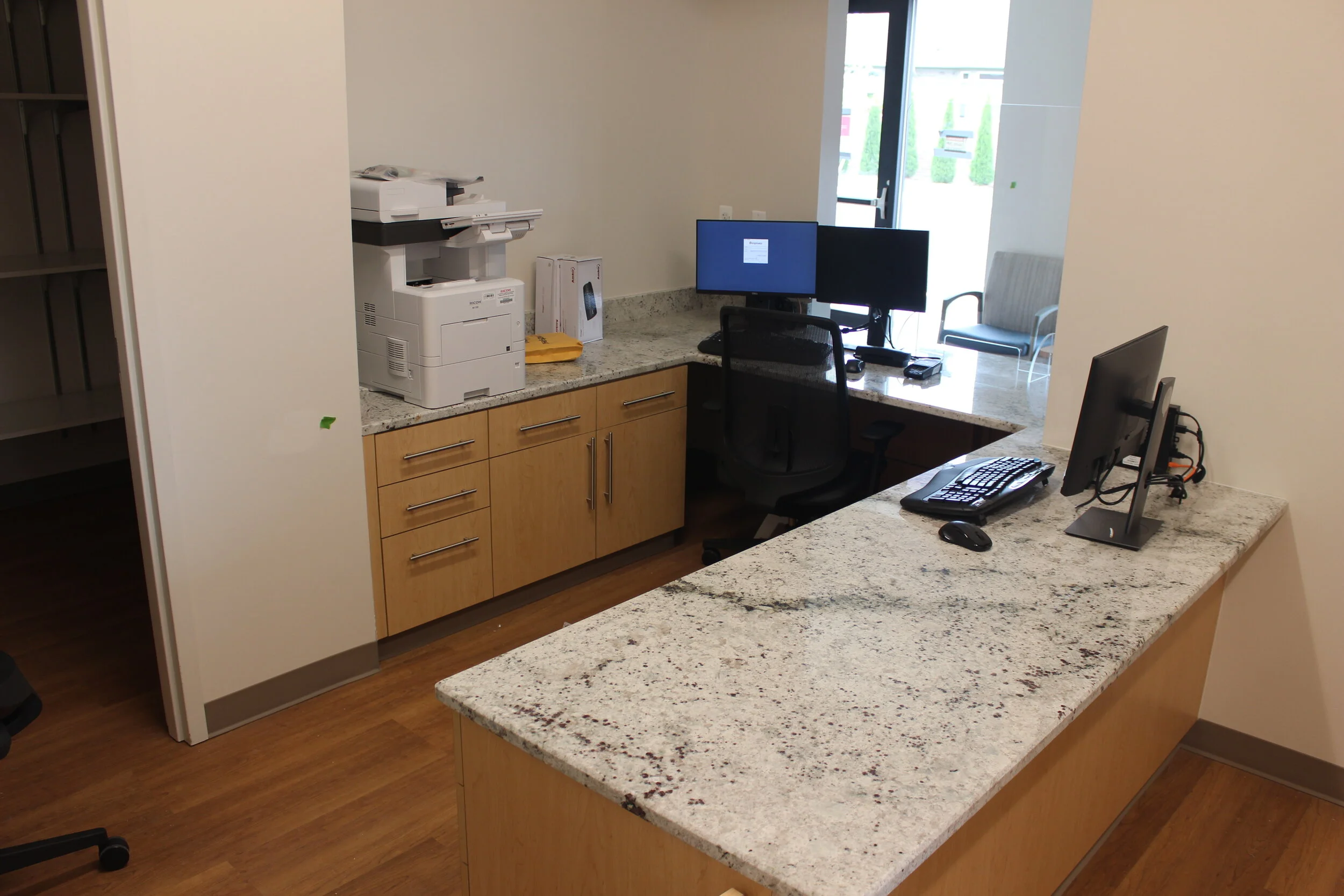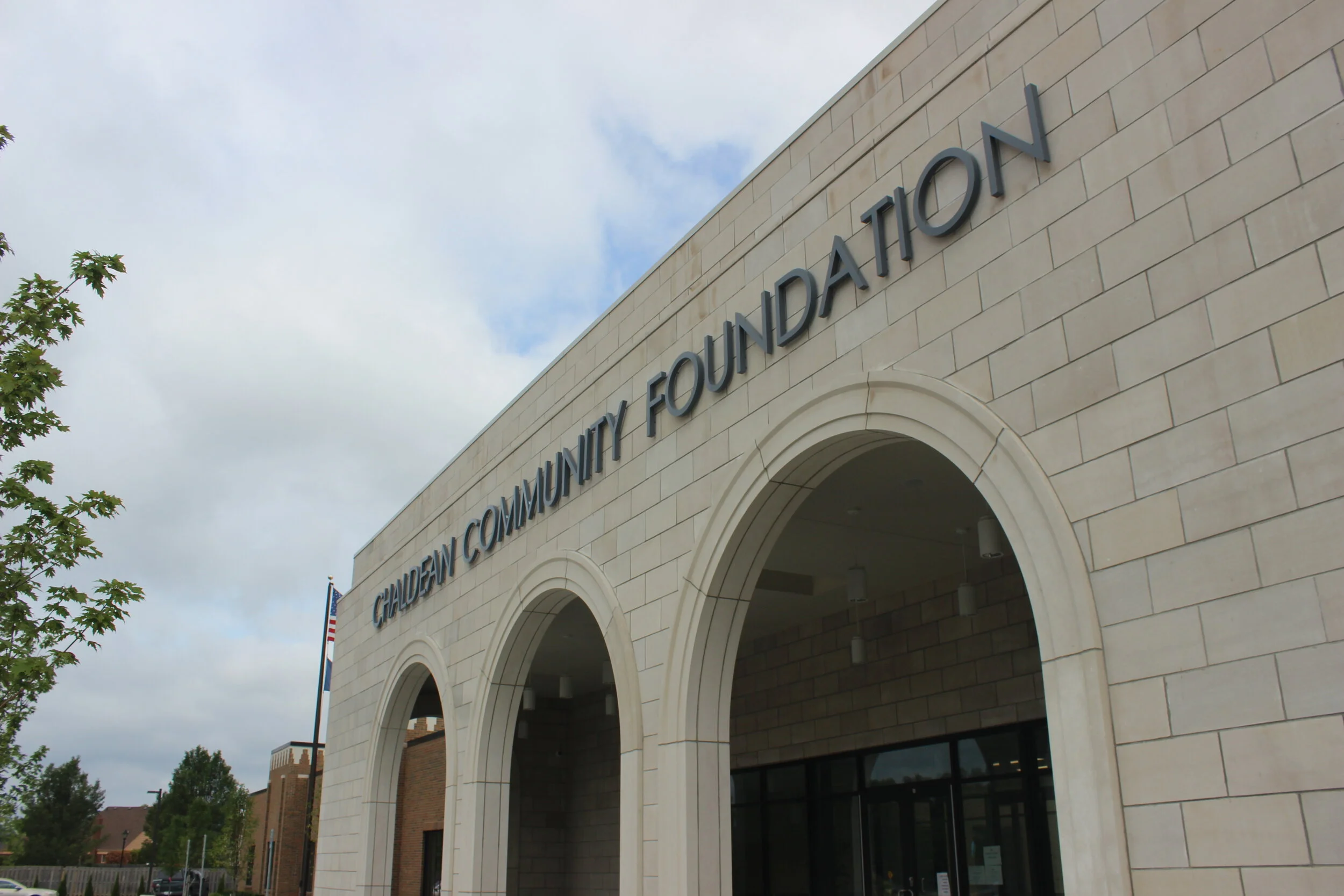A New Chaldean Community Foundation Raises Its Roof
By Sarah Kittle
At 15 Mile and Ryan Roads in Sterling Heights sits a monument to Chaldean culture, its limestone arches shining in the sun. It’s a beacon to the immigrant community that sees the Chaldean Community Foundation as a friendly place to ask for help. Ever since their doors first opened in 2011, the need has been greater than capacity. That’s about to change.
The new façade may look like a larger version of the previous but the interior area has gained nearly three times the square footage. From the expansive new lobby that overlooks an interior courtyard to the full-court gymnasium to the completely staffed medical clinic, an entire community exists within the building. Everything in front of you and to the left once you walk through the front doors is brand new. It didn’t exist even a year ago, except in a floorplan.
The Chaldean Community Foundation (CCF) was born out of the minds of a handful of visionaries who wanted to keep the faith, culture and traditions of their homeland alive while embracing the opportunities that America had to offer. They wanted to share their blessings with others that followed, and to help new Americans assimilate well enough to be independent of social services.
The president of CCF, Martin Manna, explains, “Originally we wanted to help new arrivals navigate the waters, help them with visa applications and citizenship classes. But the need was greater than that.” The majority of clients (80 percent) are from Iraq, a country that has been ravaged by war for two decades. Programs such behavioral health and personal development help clients heal the inside while career services, scholarships and affordable housing help them build up the outside. There will always be a need for these services.
The original building, which was the second home of the CCF, still exists and remains basically the same. The problem wasn’t the building; it’s just that it wasn’t big enough. Saroki Architecture won the bid to design the addition, and they seamlessly married the two buildings, keeping the significant arch design. The addition looks like it has always been there.
Some big names are going up on signage in the new space. The Konja Family Art Studio is a big bright room designed with lots of natural light for art therapy classes. Painting, dance and music will be taught and encouraged as a way to communicate feelings. Students will be trained to tap into their emotions, work through them and finally release them as artistic expression. That is where true art is born.
Thomas M. Denha Main Street celebrates the legacy of a man who knew the value of family and community. The street is reminiscent of a simpler time, with your neighborhood barbershop in SuperCuts, the friendly bankers of Level One, and the well-stocked corner store, Wild Bill’s Café. Filling more than one role, these stores will serve as training centers as well as retail stores. Students will have the opportunity to job shadow, developing appropriate work habits and specific job competencies.
At the heart of the new CCF building is the Life Skills Wellness Center. It is the dream of many, including Susan Kattula, who started as a case manager taking life history information from newly arriving refugees and immigrants. Clients with disabilities face additional challenges, and Kattula saw the need to offer life skills training for the special needs individuals she worked with so closely. The new program is a result of her and her team’s tireless work to create services not accessible due to cultural barriers.
The CCF “Breaking Barriers” team understands the need to provide programs to engage special needs clients and their families. Programs can help to build creativity, confidence, focus and collaboration. Individuals with special needs benefit from art, music and dance programming that is specifically developed to engage them. It has been proven for example that music can positively influence an individual’s behavior by affecting the brain through sound waves, thereby impacting other bodily structures.
Research has shown that traumatic stress has negative effects on overall health and well-being. Traumatic exposure has been linked to higher rates of psychological and physical health problems. Individuals as study participants who completed artwork as a mode of expression reported more enjoyment and were more likely to participate.
The Life Skill Wellness Center will offer programming, education and training to those with developmental and intellectual disabilities. The program will specifically offer skill-building activities designed to foster increased independence. The goal is successful functioning and productive workers, at home as well as in the community.
Classes offered include Daily Living Skills, a series of basic activities performed by individuals on a daily basis necessary for independent living at home or in the community. Subjects include personal hygiene, dressing, and eating. Another series offers classes in basic communication skills, transportation, meal preparation, shopping, housework, managing medications, avoiding conflict, managing personal finances and leisure activities.
Personal skills training will help students develop self-awareness, self-confidence, socially responsible behavior, good interpersonal skills, independence, decision making, and communication skills.
Since the CCF serves the immigrant community, acculturation classes are very important. Socialization is in the lesson plan, with role playing as a tool. Support and respite for caregivers is a priority as well. The new gymnasium sponsored by Wireless Vision will provide not only a space for recreational programs and fitness classes for clients, but also a place for caregivers to unwind and recharge.
The place to really chill, though, is the Leila and Johnny Kello Courtyard. In the middle of facility where east meets west sits the open-air courtyard which includes comfortable seating for optimal socialization as well as meditation and mindfulness. A gas flame representative of the ‘eternal flame’ will burn for John Loussia and allow a space for contemplation and introspection with the courtyard. The garden services the sight as well as the soul.
Everything has been well thought out for maximum care. With Ascension doctors providing services onsite, clients are encouraged to take control of their own health and create a plan to ensure that health continues. Mental health and physical health are treated as equal; each affects the body in the same measure. Behavioral Health services include therapy and group work.
The new CCF Center will open in August.
